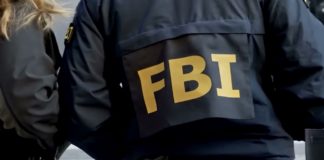OPINION | This article contains commentary that reflects the author's opinion.
Bias left-wing fact-checkers haven’t been able to bury this story because it’s true.
A special counsel was appointed in October by the Wisconsin Assembly to investigate matters of election fraud in one nursing home in the state.
The investigation looked across the entire state and has subsequently found evidence of “rampant fraud and abuse in nursing homes across five counties.”
The Racine County Sheriff announced that residents somehow voted who didn’t have the cognitive ability to vote.
The “bottom line” is that 92,000 people in Wisconsin reside in these facilities and the failure of Wisconsin election officials “to prevent wards and incapacitated persons from voting in the 2020 Presidential election” casts “doubt on the election result,” according to the report.
Those 2020 general election results showed the midwestern state breaking by 20,682 votes to Joe Biden.
According to the Office of Special Counsel’s second interim report filed on March 1 with the Wisconsin Assembly, “Rampant fraud and abuse occurred statewide at Wisconsin’s nursing homes and other residential care facilities.”
Wisconsin Special Counsel Finds ‘Widespread Election Fraud’ In 2020 Nursing Homes https://t.co/U4i2wSo8aX
— Sean Davis (@seanmdav) March 3, 2022
More on this story via The Federalist:
That conclusion represents but one of the key findings of election irregularities detailed in the nearly 150-page report—a report that also confirms the conclusion of the Racine County Sheriff’s office last fall that fraud occurred at nursing homes in Wisconsin.
Special Counsel Michael Gableman, the retired state Supreme Court justice appointed by the Wisconsin Assembly to investigate integrity concerns about the 2020 election, vetted more than 90 nursing homes in five different counties before concluding there was “widespread election fraud at Wisconsin nursing homes in November of 2020.”
According to the report, nursing home staff and administrators illegally handled absentee ballots, illegally assisted with “marking” residents’ ballots, illegally “witnessed” the voting, and possibly included forgery of the elderly residents’ signatures. Under Wisconsin law, these violations of the election code constitute fraud…
Further, the special counsel’s report showed that fraud found was not merely “technical” fraud but resulted in ballots cast and votes counted contrary to the intent of the nursing home residents. The “improbably high voting rates” alone creates a strong inference of fraud, but the special counsel also gathered evidence of fraud, such as suspected forgeries of residents’ signatures and situations in which the residents who “cast” a vote had been adjudicated mentally incompetent, meaning they no longer had a legal right to vote. Other residents, while not adjudicated mentally incompetent, “were unaware of their surroundings, with whom they are speaking at any given time, or what year it is.”
The report backed up these conclusions with specifics, such as the case of Resident D. Resident D lived in a facility in Brown County, Wisconsin. Her family took Resident D to vote at her assigned polling location, but when she presented herself to vote on election day, the election workers informed her she had already voted.
After questioning from her family, Resident D recalled someone at the nursing home had talked with her about voting, but she denied voting at the residential facility. Nonetheless, records from 2020 show Resident D cast an absentee ballot.
Because a ballot had already been cast in her name, Resident D was disenfranchised, and she was far from alone given the findings of the special counsel’s report. Those findings were limited because, while the special counsel’s staff “spent significant time and resources investigating the fraud and abuse that occurred at Wisconsin’s nursing homes,” the special counsel’s audit was limited in scope. To fully understand the significance of the fraud, Gableman concluded, “a state-wide, complete audit of all absentee votes from all facilities” required to use SVDs is necessary.






